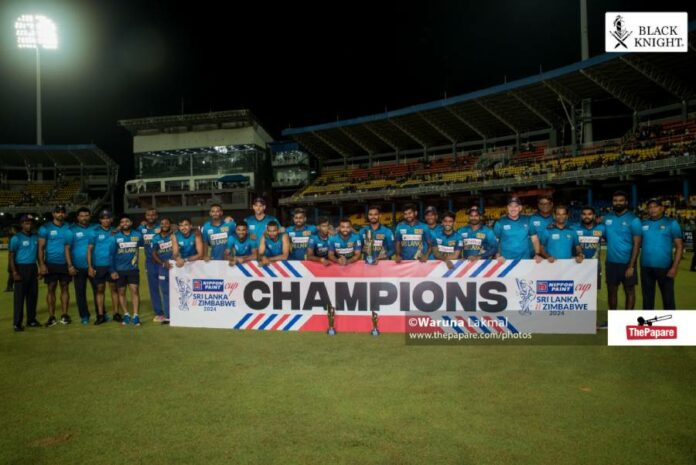Over the years, Zimbabwe have given several major cricket nations a few nightmares. It all started with Duncan Fletcher’s side beating Australia in the 1983 World Cup. This was no ordinary Australian side, but one that had Border, Wessels, Hookes, Lillee, Thomson and Marsh.
Then in a subsequent World Cup in 1992 they humbled England and nearly overcame Sri Lanka too. That performance earned them Test status later that year. Since then, many Zimbabweans like Dave Houghton, Andy Flower, Murray Goodwin and Neil Johnson have marveled us with their achievements in the sport.
However, sadly, Zimbabwe are a pale shadow of their former self currently. It is true that they gave Sri Lanka a good run for the money but that is more to do with the poor standards of Sri Lankan cricket than the opposition being any good.
Zimbabwe have a very good left-arm seamer in Richard Ngarava. Their T-20 captain Sikandar Raza is a reliable all-rounder while their batting revolves around Craig Ervine and Sean Williams. The rest of them are merely making up numbers.
It is evident by the fact that Zimbabwe lost both ODI and T-20 series recently to Ireland at home and were also beaten by Namibia. Then of course, they failed to qualify for this year’s T-20 World Cup in the Caribbean and US.
Sri Lanka should have cruised past the opposition in these six games, particularly playing at home. Or perhaps they should have rested even some of their premier players like Dushmantha Chameera, Dilshan Madushanka, Maheesh Theekshana and Kusal Mendis.
But the selectors opted to play full strength sides and had to fight tooth and nail to overcome the opposition. That is a bit worrying.
The series against Afghanistan next month will give us a fair idea as to where we stand. It’s a strange feeling indeed. We used to measure ourselves against Australia and India not too long ago to find out how good our team is, but now we are pitting ourselves against the Afghans. There is no shame in that come to think of it for the Afghans have come a long way and they are testing some big boys in cricket. That was showcased during the World Cup last year and during the current T-20 series in India.
Sri Lanka have a few issues to sort out soon. What are they going to do with Kusal Perera and Avishka Fernando? Both players were a flop during the Zimbabwe series. The fact is that the Sri Lankan side has too many players who are good at consolidating and maybe in the case of the dashers they like KJP and Avishka they need to be a bit more patient. It is bit of a tricky question as both players don’t give you a bowling option and aren’t the best of fielders.
Batting collapses is another area that needs to be addressed. In T-20 cricket you find that before the Power Play overs your top order has perished, and the middle order then has to rebuild. At times, you find the team getting bowled out inside the 20 overs and these collapses have hurt the team dearly.
The return of Angelo Mathews has enabled Sri Lanka to address the issue somewhat. He held the innings together and proved what the team has been missing by walking away with Player of the Series award on his comeback. His knocks in the first two games were crucial.
With the World Cup in mind, Mathews has to work on his running between the wickets because he turned down a few runs unable to keep pace with Charith Asalanka.
The thing with Mathews is that he gives you a bowling option as well. But is he there to bowl the last over of the innings? No, such tasks should be entrusted to one of your leading bowlers. It was obvious that Wanindu Hasaranga got his calculations wrong exhausting all overs of his premier bowlers.
The maturity that Asalanka showed was another plus point and he is now making it a habit to dig the team out of tough situations. He’s been around only for three years but his stocks have been steadily rising that the selectors have been preparing him for a long captaincy stint.
Hasaranga saying that he will place lot of emphasis on fielding is certainly a move in the right direction. Even at times when the Sri Lankan team did well, their bowling was not the strongest, but fielding compensated for it.
The reason why the team has hit hard times at present is because this vital discipline has been neglected and not given due importance. Let’s hope Hasaranga will live up to his words. If Sri Lanka had not spilled as many as 16 catches in the World Cup, they would have certainly finished higher than ninth. That means they wouldn’t have got knocked out from the Champions Trophy as well.




















